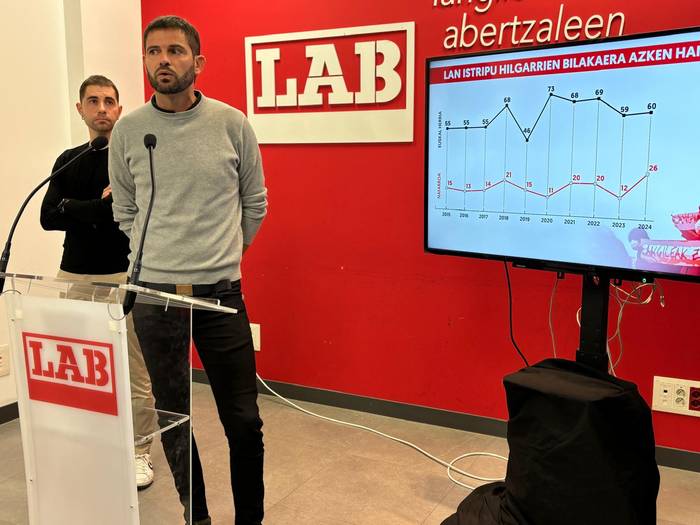Sleep starts today
- To address the social and economic situation of young people, we turn to sociologists, teachers and older researchers. While appreciating their contributions, we have sought another way of answering the same questions: we have brought together four young people who have not exceeded thirty years to speak and look to the future of a reality they know so well and closely.
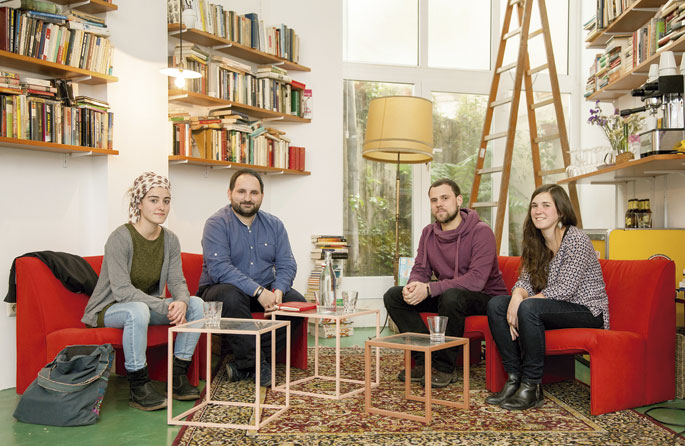
What do you associate precariousness with? What comes to mind when you hear precariousness?
Kattalin Saintte-Marie. I live it personally as a situation without security, without security in your future and with the need to live in an unstable situation. Always keep in mind how you are going to progress, how things are going to happen... And that's linked to the lack of work, but also to certain working conditions, and that affects the house, the relationships ...
Endika Pérez Gómez. It is true that many times when we talk about precariousness, we focus the issue on the field of work, but we have to bear in mind that it involves insecurity or instability that is not limited to one area, but is limited to all areas of life: housing, social relations...After all, precariousness is a consequence of not achieving an ideal that we have wanted to sell. They have given us a bourgeois ideal of consumption and production, and it is the impotence that produces the unattainable.
Joanes Rosó. Precariousness itself, as a definition, is something that needs to be solved, and we will look for a solution to that situation by the branches. By definition, it is a concept of poverty, but until a few years ago this situation was considered temporary, of which it is in a situation of transition and which is about to jump into a new era. The current problem is that precariousness has become widespread and has stabilized. But today, young people, from precariousness, we can design our future.
Onintze Goitiz Auria. We must bear in mind that precariousness is not new. It is a situation that has arisen historically many times. It lacks power, and the underlying problem is the inability to choose, because we don't have the ability to decide how we want to work and live. That leads to precariousness.
Is precariousness different in different social classes, genders and ethnicities?
R. P. Dr. G. Those who suffer from precariousness are, as has been said, those who have to sell their production in the labour market, and therefore are linked to a particular social class. But that does not mean that it affects all sectors equally within this class of workers. In the case of women or immigrants, for example, the situation is increasing. In the case of youth, it is true that it is closely related to precariousness, but in the operation the concept of eternal youth that has been pursued in recent years must be taken into account. They want to extend this age group of consumers to the fullest.
K. S-M. Yes, precariousness increases in people who have already experienced precarious, unsafe or oppressive situations; as Endika said, both in the case of immigrants and women.
Oh! Dr. G. A. We must not forget that precariousness is accepted by us. That is, we decide where the boundary is between the precarious and the non-precarious. When people generally talk to each other “bah, that work is precarious,” we are tagging, but that label can be adaptable and even to the same border. I find all the paid work precarious, because we do not have the opportunity to decide on our production.
Following the idea of age and the prolongation of youth, perhaps the concept of youth in itself is another invention of the capitalist system to reproduce the roles, consumption, etc., which the system itself has established in this marked age group.
R. P. Dr. G. I do not believe that youth as a whole is something that can impose on us as a cultural, social or age identity. It is worrying, however, how the system has managed to assimilate all this and turn it into a reproductive element of the system itself. There is nothing more to do with all the characteristics that need to be fulfilled and consumed if we want to achieve the perfect youth.
J. Oh my God! I agree with Onintze, what do you compare, depending on whether a situation is precarious or not. If we're ready and we get tools to decide what and how we want to work on, the meter is different. If you're happy with what you have, I'm sure the line of precariousness will be somewhere else. More than age, the time of your life makes a difference. In the end, the way of living precariousness is not the same when 24 years of age is still ‘child’ of a family or having children.
Labor flexibility is another concept that is widely heard. How much advantage and instability do you have?
Oh! Dr. G. A. This flexibility is what the system now needs. It is a system, it is a market, it is a global market, and at present the distances are much smaller, but that flexibility affects our citizens.
J. Oh my God! I don't know if it's flexibility or mobility. But the question is whether we are moving because we want or because we are forced. I think moving is a wealth that helps us grow as people, but the border is between wanting and needing.
R. P. Dr. G. That mobility is rich, but provided that decent conditions are respected. Moving from one side to the other involves flexibility, but instead of having flexibility for the worker, he tells us about flexibility for those who oppress us.
“If you have work, don’t complain,” we hear each other.
K. S-M. They have sold us to the young people that we have to study at a high level, that we then have to do a master's degree, and that once we have finished we will be able to get the job. But having done all that, and I'm talking about my personal situation, you turn your head and you see young people like you, "formats," doing little jobs without work or here and there, bringing life as they can... At the end of the day, we're too chariotic for the system, so they don't take us, and you're faced with a five-year higher education and a little bit of luck that you can't reach the end of the month with a few hours of work a week. Of course, we will not even meet the working conditions... And what you say, Onintze, if you've decided that with those hours, you have enough to live, perfect, but if you can't.
Oh! Dr. G. A. Maybe when we talk about work, we have to specify the kind of work we're doing. I think we are talking about salaried work and all that entails. In the case of this kind of work, you do not own your work, you cannot decide who will give you what you have created and will disappear through an automatic mechanism to move from your hands to others. In the same sense, what you receive from there will be to reproduce it yourself. It's a matter of in-depth analysis, and we have to start working on the idea of free labor; what kind of work we can do in the collective, for us, and based on our relationships networks.
It is true that paid work has characteristics and leaves little or no right to decide the worker. But it is also true that up to now it seemed that this wage work could also bring about some kind of well-being. Now, however, there are people who want that paid job and cannot achieve it, or who, if they do, do not achieve that level of well-being. Although in both cases he is unable to decide, is there not a jump from the working class to the precarious?
Oh! Dr. G. A. Maybe you're freer without paid work, and with your time and your hand job is yours. You said that there are people who are being left out of the world of work and who are looking for that paid job. “No, I’m no longer working, I’m sending resumes, to see if I get a job.” That, unfortunately, is today the reality of many young people. Why aren't they going to do anything else? Because today there are not many alternative policies, or if there are, you don't want to make them visible. And it seems that it is better to stay in that nostalgia “so far we have lived well”, although I question that ‘well-being’...
K. S-M. All right, but these young people who are looking for employment think of the frame of those ‘good’ times experienced by their parents and it is difficult for those who have known a way of life like this to recognize and internalize that what they call ‘crisis’ is not going to happen as it has come. Without drowning in the face of this situation, we must start to create new things and look for another stability, and we must remove from our head the idea of going back to the past.
R. P. Dr. G. I agree with the nuance of paid work, but focused on the question, we have been programmed so far with the bourgeois ideal sold by the capitalist system to understand that this is true well-being, that there is no room for precariousness, even if it existed before this era. But today the system cannot respond to those needs that it sells, and the phenomenon that is happening today is that there are poor workers, people with jobs but who do not reach decent living conditions: the right to decent housing, food, clothing... Therefore, it is true that a lot is heard “if you have a job do not complain”, but I believe that those who have a job also have reason to protest. Now is the time to start building another reality, as old schemes are falling.
Emancipation, economic independence, exit from the parent's nest... Do you think that parental support leads to immobilism, or without that we could do nothing?
K. S-M. Of course parents give us tremendous protection, and we need it, but when you want to leave your parents' house and you can't... It's insurance, but how long will it last? 30 years? After a moment, when you want to leave the house, you start spinning around your head and thinking about the exits so you don't go on like that.
Oh! Dr. G. A. Is emancipation not a bourgeois concept? For me, family and affective relationships are very important, and to pose “it is, I stay out of here, I am already very autonomous, very free, very free”... I really think it is important to question the concept itself. It is important to maintain a close relationship with the closest ones, there is a lot of potential. In society, we have many loose individuals, each very emancipated, with a lot of economic burdens, but it may be more appropriate for us to attach more importance to these bonds from a revolutionary point of view.
K. S-M. Yes, it depends on how you define emancipation, but it doesn't mean that you leave the family and go by your side. Surely the value of the family, the bond with the friends and family that surround you is necessary, but emancipation does not mean that it is a limit and that you will have to do without them. And today, more than of course, it helps in the precariousness of the young man, but then the solidarity will continue like this all of his life, whether emancipating or not.
J. Oh my God! Collective sovereignty is perhaps what we have to put on the table and not emancipate it because social standards dictate it: I, with my independence, I, with all my economic burdens. After all, I am nothing alone. It seems that thanks to this crisis we have started again to turn these things around, to propose alternatives, to organize new schemes… But I say again: if something is built in a group it must be in a group.
R. P. Dr. G. Emancipation is a word that I really like, but I don't understand it in an individual way; I like it, because it talks about sovereignty or self-sufficiency. It can be understood collectively. When we say emancipation, I don't think we're talking about breaking the bonds that we have with our closest environment. On the other hand, and coming back to the question, unfortunately many young people need the mattress of those at home, because some of us may be comfortable and others there is nothing else, but we have to bear in mind that precariousness is increasingly encompassing a larger sector and that the mattress of our parents can be diminished or emptied. Faced with this, we have two options: either individually, we sell our workforce – which is the only thing that young people have to bear in mind – and among all the sharks of entrepreneurship and competitiveness that are fashionable we are trying to find our lives; or we are actually able to start moving the self-managed work from a collective and Community perspective. It seems that words are easy to say and then impossible to do, but more and more new models are being created, and you have to look at that, that's what we have to put the force on.
J. Oh my God! The term entrepreneur includes the Spanish entrepreneur and activist in Basque. And that's what we Basques do in the end, right? When we have a problem, we move to fix it. It is true that many times the term entrepreneur is associated with individual success, but at least in the cooperative model of Mondragon, where I come from, we try to drive this collective entrepreneurship, sometimes rejecting many personal comforts in favor of the team. It's usually harder for it to work in the collective, but if you only get there faster, we'll get there further in the community and we'll get a much higher level of stability.
R. P. Dr. G. Yes, but if the president of Confesbask begins to explain to us that we need young entrepreneurs to advance economically and socially, it is normal for us to be exzeptic. I agree, however, with that second round that may have the floor, entrepreneurship can be worked out from another perspective. But the system is driving individual success and competitiveness, demanding ever higher academic and labor levels when the supply is decreasing, forcing to do master's degrees and then when there are no jobs destined for it in our country.
To the current precarious situation, in general, we are responding collectively, or do we seem to be looking for individual solutions?
K. S-M. Each seeks the way to get out of precariousness as best as possible. But there are other collective alternatives that aren't heard enough. We should have more exchanges to develop these initiatives elsewhere.
J. Oh my God! So far I think everyone has tried to save themselves, but right now we have seasoned the land so that if we throw some water we can harvest the harvest. Around me, there are a lot of people who don't know where to steer their desires, and there are a lot of people who are afflicted by trying to reverse their situation. For the future, I believe that cooperative solutions are our best solution.
Oh! Dr. G. A. The collective is essential, it is only impossible to cope with the tendencies of capitalism. In this society, the person is nothing, needs the collective's support for this clash. The alternatives also come along that path. We in the gaztetxe Ortuondo of Galdakao, for example, use the communal concept. This communal productive system is part of the affective relationships that are established between us, and the main idea is to confront the tendencies of the capitalist system. The product is always a commodity and you buy it with the money you have earned from the work. In view of this, what we propose is the logic of donation: giving and sharing what is left of you, without expecting anything in return, only for the sake of the team and your environment.
R. P. Dr. G. There are alternatives, and in all cases the basis is that, instead of selling and competing with our workforce in the capitalist market, we respond collectively through self-management so deeply rooted in the youth movement. Creating parallel networks of ever-expanding market and consumption. That is the best way to respond to the situation.
But I think it's important not to fall into simplicity. It often seems that it is our fault not to be in this type of collective projects. It seems that we don't know where to start or if we don't have the ability to start a project like this, we feed the system and we don't have the right to complain. This belief must become. As long as they decide on our lives, our possibility of generating alternatives is limited. We are within the system and from there we must build the alternative. It's not easy. That is why I believe that we should bear this in mind, not in sterile fallback idealisms. We will have many contradictions, it is normal, but the process of transformation will have to start from there.
You therefore propose starting from the gaps in order to gradually transform society.
R. P. Dr. G. The system must be attacked from every possible point of view. Building alternatives, defending rights, driving models that are out of the system… but everyone must be in the same direction: on the path of sovereignty as people and as people.
We cannot deny the objective reality we live in, but that does not mean that we do not have the ability to build alternatives, even with their contradictions. And those of us who are not creating alternative, we can also contribute, defending rights and making critical and responsible consumption, to creating the necessary conditions for those alternatives to move forward.
J. Oh my God! If there are alternatives, you don't have to invent the wheel. On the other hand, social transformation requires a lot of tools, a lot of work needs to be done and a strategy is needed for it. How do we empower young people to reach those paths?
I feel despair around me. “You can’t, it’s hard…” We have to change the chip because we have tools. What we need is hope and strength to start work.
Oh! Dr. G. A. It is important for me to take steps towards sovereignty in our natural spaces and in relation to contradictions. That is, doing our studies, doing our own housing, and why not, also work; let it be a free job. Gradual coping with contradictions…
K. S-M. Alternatives can be made at our level, but it is difficult to do it completely outside the system. In Zuberoa and Behe Nafarroa there is a solidarity initiative to give economic support to young people to set up their own company, which allows money to be returned over time. It's a small alternative that allows you to create your own work and that helps you leave behind a kind of precariousness, but ultimately it also depends on the logic of money.
Can we speak of an economic alternative without taking into account other spaces and areas? What happens, for example, to young people?
R. P. Dr. G. You have to fight and throw away lots of spaces. Reflections are also made on employment in youth centres, so the alternative economy and alternatives in other areas are closely linked. For example, the public universities that have recently been organized also have a lot of strength and pull in the same direction, because the development of consciousness is essential for the alternatives to move forward. All these initiatives have in common the collectivization and passion for transformation, which also collaborate with each other.
Oh! Dr. G. A. The gaztetxes model is a very powerful alternative, and it's true that so far it's been very much related to leisure, but now we're also turning that around. In the last meetings of Gaztetxe it has been noticed that instead of living leisure as something that until now was out of work and study, also in these spaces you are looking for ways to organize the time and life of each one. The same is true of housing, the okupation dynamics is also part of the gaztetxes, in some cases, to turn it into a way of claiming the right to housing.
R. P. Dr. G. Many of today's youth assemblies, for example, have a garden project. The issue of food sovereignty, for example, has been increasingly internalized by projects. This is where a process begins and, gradually, spaces are being gained.
To what extent should the alternative be brought? Is it enough to start slowly?
J. Oh my God! Spaces should gradually gain, training people. We have to understand where what we consume comes from, why value has been worked…
Local development means that if we produce here we will create work. Having an orchard isn't easy, it takes a lot of work, and that's why you have to do that planning at the community level. To this end, we are in transition, and there are projects that have already been launched. Building life projects from those logics, that's the next step. In recent years this trend has also changed: so far we have been told that work is work, and outside it you will develop your personal life. Now I think we're seeing that we're the same person in the personal, in the workplace, in the family or in the political. We have a life, we are always the same person, and relations at all levels influence society and the economy. We have all these spaces to win.
Oh! Dr. G. A. Ideologically too, a great deal of work needs to be done. So far, and in many cases still, we asked for work, for someone to give it a salaried job, almost please. Take money out of my job. Steps need to be taken gradually, dialogue and debate a great deal, creating realities different from alternative practices.
R. P. Dr. G. We must not forget that as long as we do not own the means of production, capitalism also has a complete ideological apparatus to maintain its model. When we create alternatives, even if there is a change in local dynamics, we must also make a strong ideological struggle. Alternatives must be created, but instead of being just for the small community, they must have a vocation for transformation. To think like a village and to act on the premises, that's the key. Otherwise, the problem we've solved in our community will remain in neighboring communities. In addition, it must be borne in mind that more than one person in need cannot give up such paid work and we cannot exclude these people from transformation.
Oh! Dr. G. A. We have a great productive capacity, but we don't have the means. We also have that ability to work that we sell. Sometimes it seems that we're afraid to own ourselves. Say we prefer, “do this and I will give you some bread.” It seems that we want to be tied to the hand that gives us food, like a farm animal, and if it doesn't have a hand, we'll starve to death. But maybe we have to be beasts and look on our own for food for survival, without waiting for who is going to give them to us.
R. P. Dr. G. It is clear that yes, we have strength, and it seems to me that we are the generation that it is up to you to put those experiences in place and to make progress. But sometimes we go from one end to the other and there are very simplistic speeches. “Alternatives must be built, that is the way” and the rest is relegated. The alternative is not only to live well, but to create as a people. That does not mean that all projects have to be national. If we focus on this path, at a given moment we will not speak of an alternative, as this way of doing will be hegemonic.
So far we are on a rather theoretical level, but the starting point is the everyday reality of thousands of young people. For example, what door can a newcomer touch, how can he start his path…?
K. S-M. In that I see the border between the collective and the individual. I think most young people are going to look for our own way. I will finish the studies soon and the group will, of course, help me, my friends, my family… But on an individual level I will surely need to go ahead with my paid work. I will continue to look for alternatives at my level, but for the moment I believe that despite working at partnership level, I will also have to continue working on a job insofar as I live in the system, because we need money. Maybe it's pessimistic but…
J. Oh my God! There are different areas. If we cannot do it on an individual level alone, we have to understand that even without the use of organisations, it is very difficult for these alternatives to be viable. If not, we put our initiatives in place, but the institutions are constantly hampering us.
K. S-M. Not everything will be done overnight. It is possible that the people we mentioned join one, the salaried work and the alternative. But it takes time, and I see the difficulty. However, that is our challenge, albeit not for us, to make it that way for future generations.
Onintze Goitiz Auria
Bilbo, 1989. Etxebizitza, baratzea eta gaztetxea biltzen dituen Galdakaoko Ortuondoko partaidea.
Kattalin Sainte-Marie
Landibarre, 1992. Euskaldun Gazteria taldeko kidea. Soziologian lizentziatua eta lurralde antolaketa ikasketak bukatzear.
Endika Pérez Gómez
Larrabetzu, 1988. Lorezaintzako ikasketak eginda langabezian dago. Ernai gazte antolakundearen sozio-ekonomia lan-taldeko kidea.
Joanes Rosó
Elgoibar, 1987. Ekintzailea. 2013an hamar gaztek sortutako TZBZ berrikuntza prozesuen aholkularitza-enpresa kooperatiboko kidea.
LANBIDE has launched an anti-fraud campaign in Income Guarantee Income and has created an anonymous whistleblower. Responding to the criticisms received, he said that this mailbox was merely an instrument for ordering complaints and notifications. It does not promote class... [+]







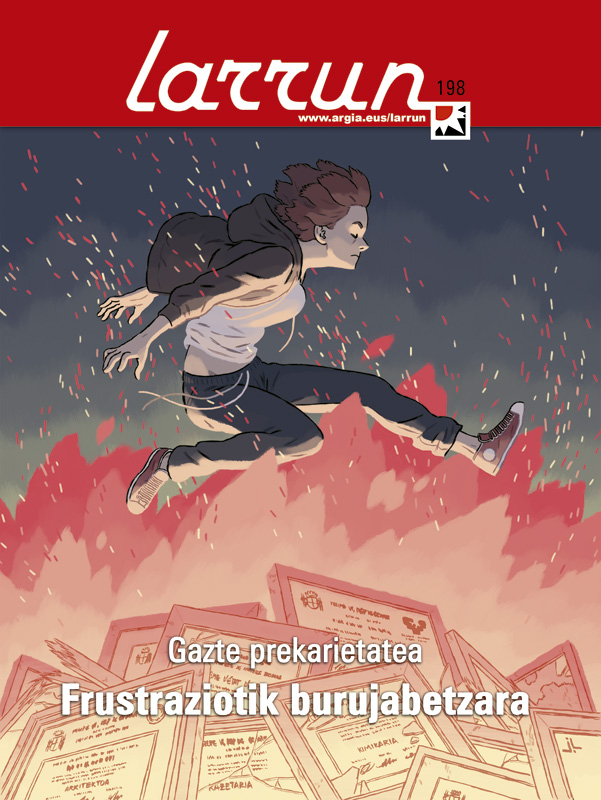

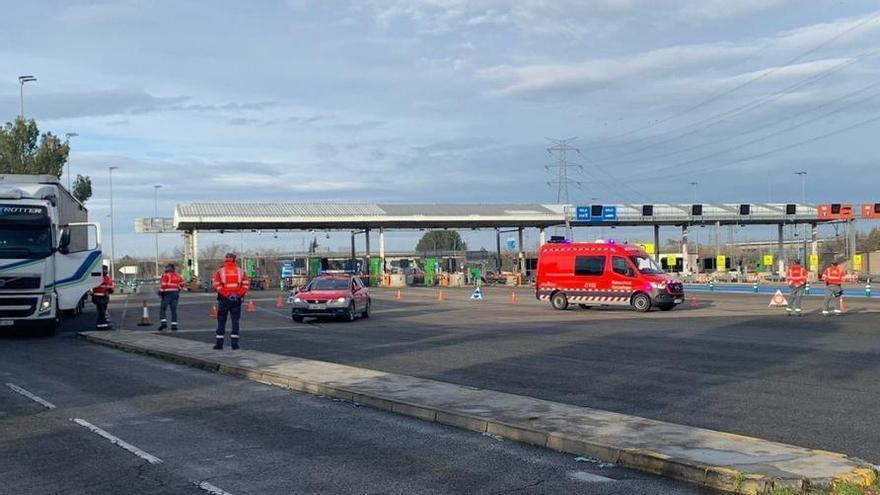
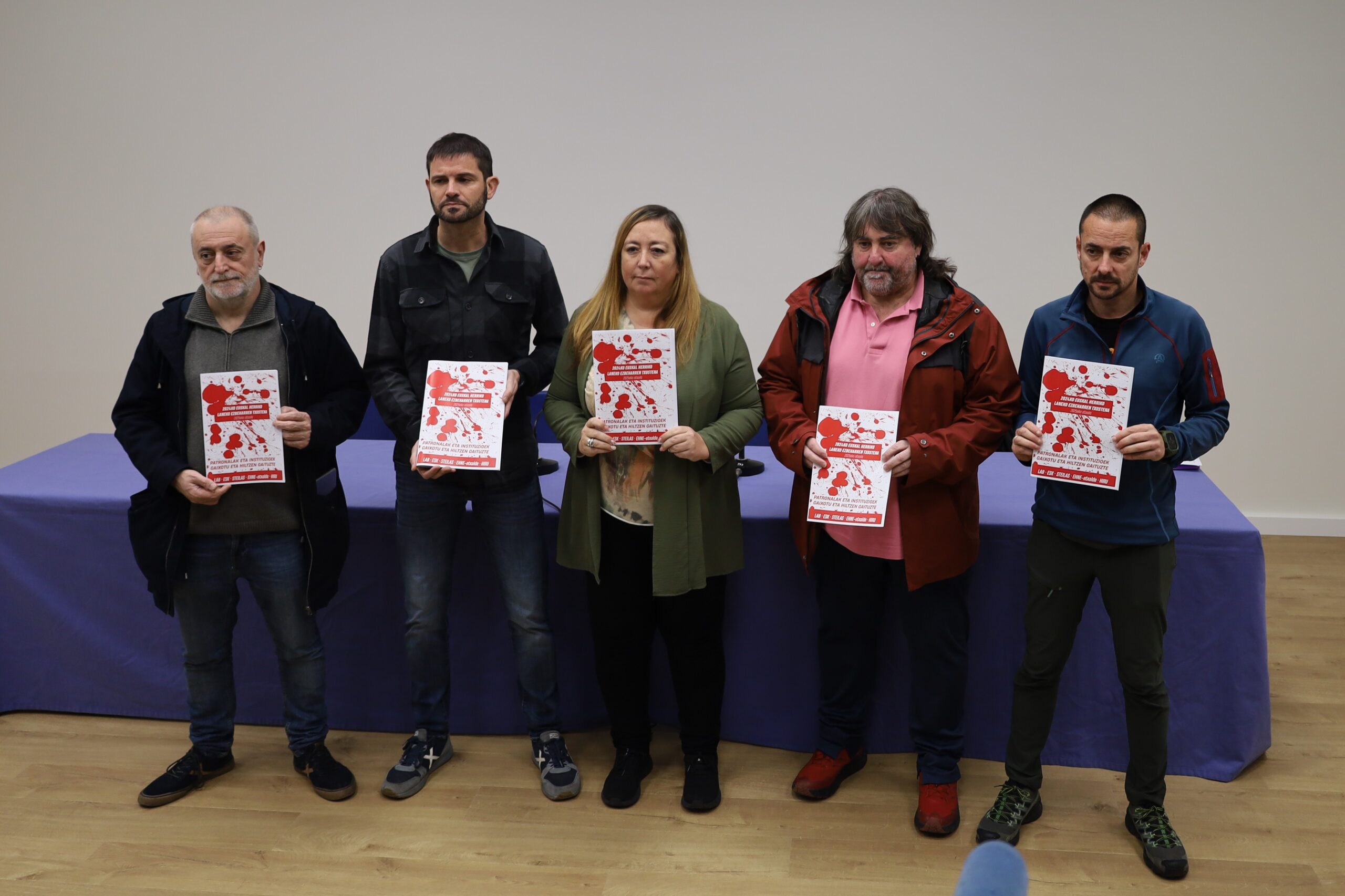
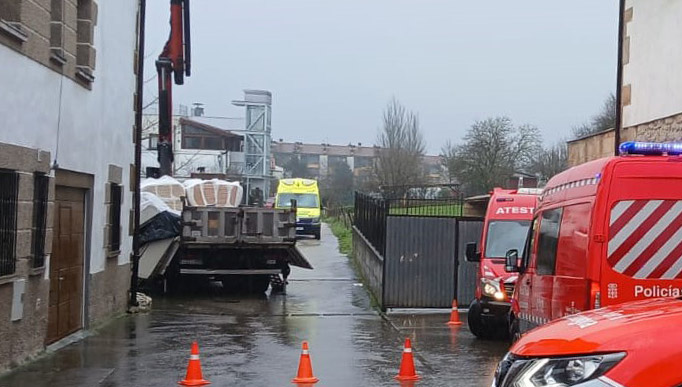

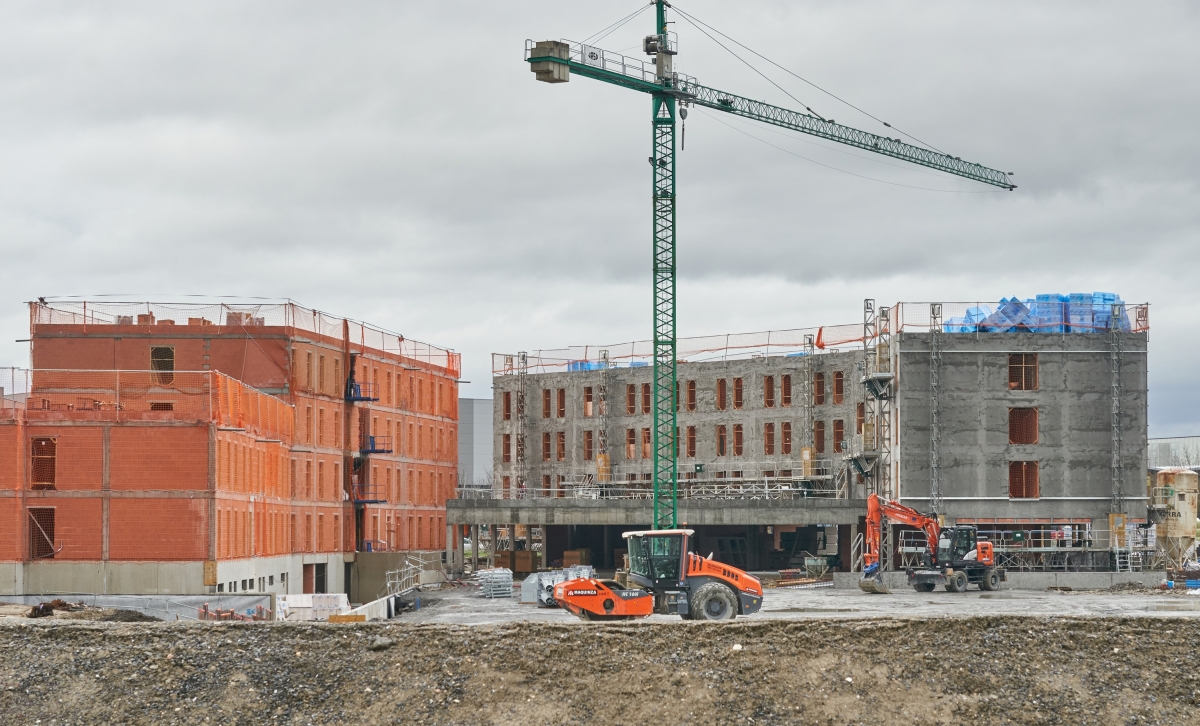


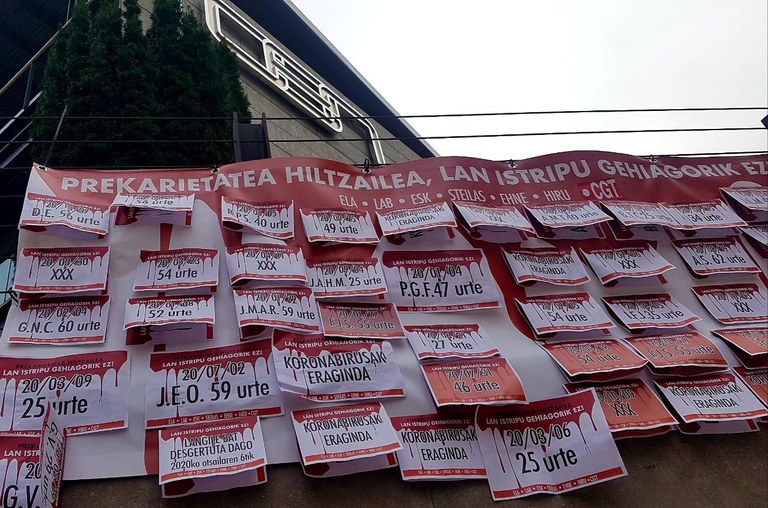
-(1).jpg)




